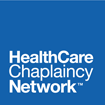Far Too Soon: The Anguish of Perinatal Loss
Course Author: Joanne Cacciatore, PH.D
This course, Far Too Soon: The Anguish of Perinatal Death, is designed to introduce the learner to all aspects of newborn death including etiology and epidemiology, ritual, best psychosocial caregiving practices, and the effects on parents, siblings, grandparents, and society. Chaplains and spiritual care providers are in the unique position of serving as mediators and facilitators in the interaction with and care for patients, families, and staff when spiritual, religious, existential, and cultural issues arise in perinatal loss.
By the end of this course the learner will be able to:
- Define stillbirth and explain the epidemiological factors involved.
- Understand the psychological/emotional, social, and interpersonal effects of perinatal death.
- Explain 3-5 different theoretical perspectives on grief.
- Understand the import of ritual and explain the ways in which parents may choose to ritualize their baby.
- Explain the role of the chaplain in the experience of perinatal death.
- List the ways in which the social and sociopolitical environment influence a bereaved parent’s grief.
- Delineate the ATTEND model and apply it to case studies.
Course Outline
- Introduction
- Epidemiology of Perinatal Death
- Grief Theories
- The Trauma of Birth and Death, Coalesced
- Surviving Siblings
- Ritual
- The sociopolitical agenda of perinatal death in America
- Spirituality
- Coping Models
- Supportive Caregivers
- Tying it all Together: Chaplaincy Care for Miscarriage
- Summary References
Number of Continuing Education Hours: 25
Credit towards Board Certification Requirements: 1
Aligns with the following Quality Indicators in What is Quality Spiritual Care in Health Care and How Do You Measure It? (HCCN. 2016).
- Process Indicator 2.B. All clients are offered the opportunity to have a discussion of religious/spiritual concerns
- Process Indicator 2.C. An assessment of religious, spiritual, and existential concerns using a structured instrument is developed and documented, and the information obtained from the assessment is integrated into the overall care plan
- Process Indicator 2.G. End of life and Bereavement Care is provided as appropriate to the population served.

